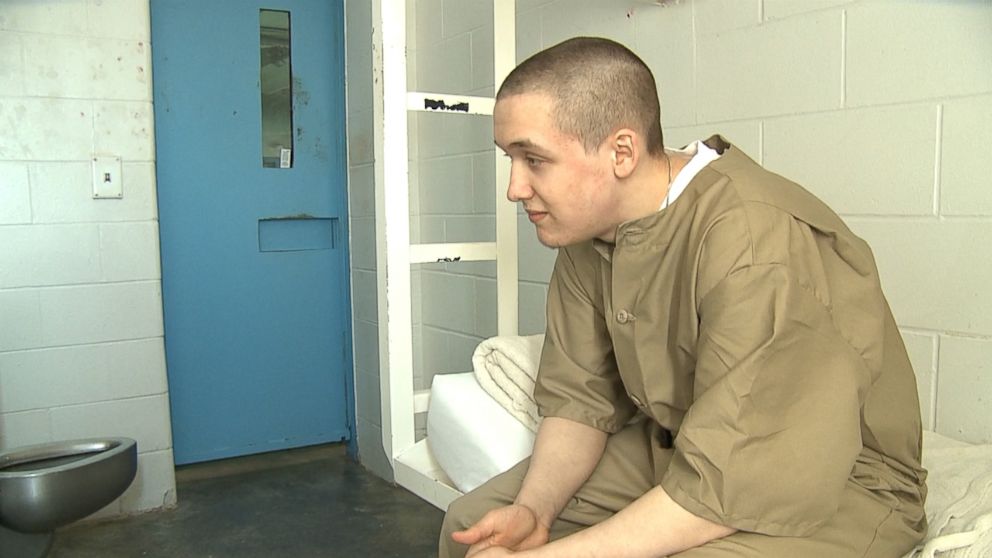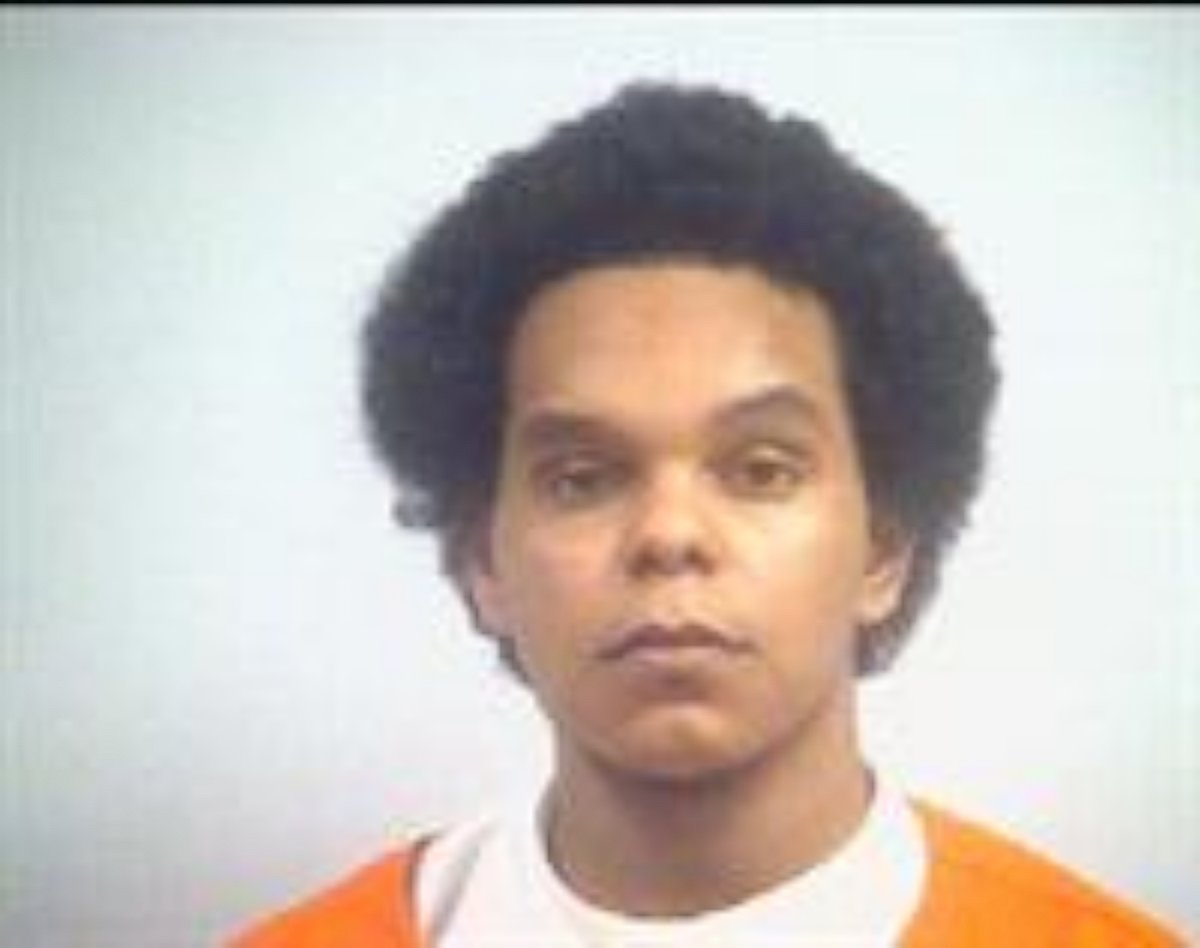Indiana Man, 21, Who Was Sentenced to 50 Years in Prison in 'Elkhart 4' Controversial Felony Murder Case, Enjoys Freedom
Levi Sparks is "thankful for second chance."
— -- Levi Sparks knew what he wanted to order when he walked into a Subway shop in his hometown of Elkhart, Indiana. He had been thinking about this sandwich for over three years.
“I know exactly what I’m going to get,” Sparks said. “Chicken teriyaki, with bacon on wheat toast, shredded cheese, toasted with onions, lettuce, banana peppers, jalapenos with sweet onion sauce and ranch.”
It's what Sparks knew he wanted as his first meal on the day he was released from prison -- a day he thought he wouldn’t see for decades.
“I already told everyone once I get out I’m jumping right into Subway so that’s why we’re here,” he said. “I’m about to be sleeping all night, all day today and tomorrow. A nice comfy bed. ... Ready for a good night's sleep for the first time in forever.”
Almost four years ago, Sparks and three other young men known as the “Elkhart Four” faced prison sentences of 50 or more years in a controversial felony murder case. Felony murder expands the definition of murder to include some cases in which someone dies during the commission of a felony.
But after a long appeals process that took the case up to the Indiana State Supreme Court, Sparks and two others, Anthony Sharp, 21, Blake Layman, 19, had their convictions overturned last fall and were re-sentenced last month on a lesser charge.
Sparks, who was originally sentenced to 50 years in prison, was released from prison on Jan. 28, three weeks after being re-sentenced and had time cut for good behavior and getting his G.E.D.
“Just thankful, that’s what it comes down to. Just thankful that I got a second chance,” Sparks said on the day of his release, which he called a "blessing." He vowed not to "start doing stupid stuff again."
"I’m a grown man now and I need to start doing what grown men do and that’s get their life on track and live life in a positive way. And that’s what I plan on doing,” he said.


ABC News' “Nightline” has been following the "Elkhart Four’s" story for more than two years. Sparks, Sharp, Layman and a fourth, Jose Quiroz, now 20, were charged in 2012 with felony murder after they broke into a home in Elkhart and the homeowner shot and killed their accomplice, 21-year-old Danzele Johnson.
Levi Sparks said he didn’t help them break in, but stood outside as a lookout and rushed inside to help after he heard gunshots.

Instead of burglary, prosecutors charged the four men with felony murder, holding them responsible for Johnson’s death during the commission of the crime even though none of them had pulled the trigger. Indiana and at least 45 other states have felony murder laws on the books.
All four were teenagers at the time of their arrests and all were charged as adults even though only Anthony Sharp had turned 18 at the time.
The homeowner, Rodney Scott, was not charged with a crime because prosecutors determined he acted in self-defense.
In December 2012, Quiroz pleaded guilty and was sentenced to 45 years in prison, but the other three -- Layman, Sparks and Sharp -- decided to go to trial. On Aug. 22, 2013, a jury convicted all three of felony murder.

Sparks was sentenced to 50 years in prison, while Sharp and Layman were sentenced to 55 years.
Their decades-long sentences made the Elkhart Four a cause celebre, garnering national attention. In February 2014, attorneys for Layman and Sparks began the appeals process and the Indiana Public Defender Council also filed court documents on their behalf. The case was appealed up to the Indiana Supreme Court.
On Sept. 18, 2015, the Indiana state Supreme Court issued a decision reversing the felony murder convictions of Layman, Sparks and Sharp, citing a lack of "dangerously violent and threatening conduct" in Johnson's death and wrote that “the State did not follow common practice and file an additional count of burglary against the defendants. It chose instead to file a single count of felony murder in the perpetration of a burglary.”
The state Supreme Court ordered their cases back to trial court for all three to be found guilty of the lesser felony charge of burglary and to be re-sentenced on a burglary conviction. Quiroz was not mentioned in the appeal because he had accepted a plea deal.
On Jan. 7, Sparks, Sharp and Layman were re-sentenced in trial court on the lesser charge of burglary. Sparks was given nine years and Sharp and Layman were given 10 years.
Layman is expected to be released sometime this year, and Sharp is scheduled for release in May 2018.
On Feb. 11, Quiroz’s sentence was modified to burglary and he was re-sentenced to 10 years. He is expected to be released this fall.
Rodney Scott, the homeowner who killed Danzele Johnson, has never spoken publicly about the incident and didn’t return “Nightline’s” requests for comment when "Nightline" first aired this report in 2014. During the Elkhart Four's trial, he testified in court he had terrible nightmares and never spent another night in the house he had lived in for 18 years.
Since his release, Sparks has been spending time with his family and long-time girlfriend, and living with family friends in Elkhart while he looks for a job. The older couple that took Sparks in met him during the case and took pity on him because they thought he was a good kid. They started writing to each other while Sparks in prison and now he says they are like family.
This story was produced with the help of Calamari Productions, which is funded in part by the Annie E. Casey Foundation.




